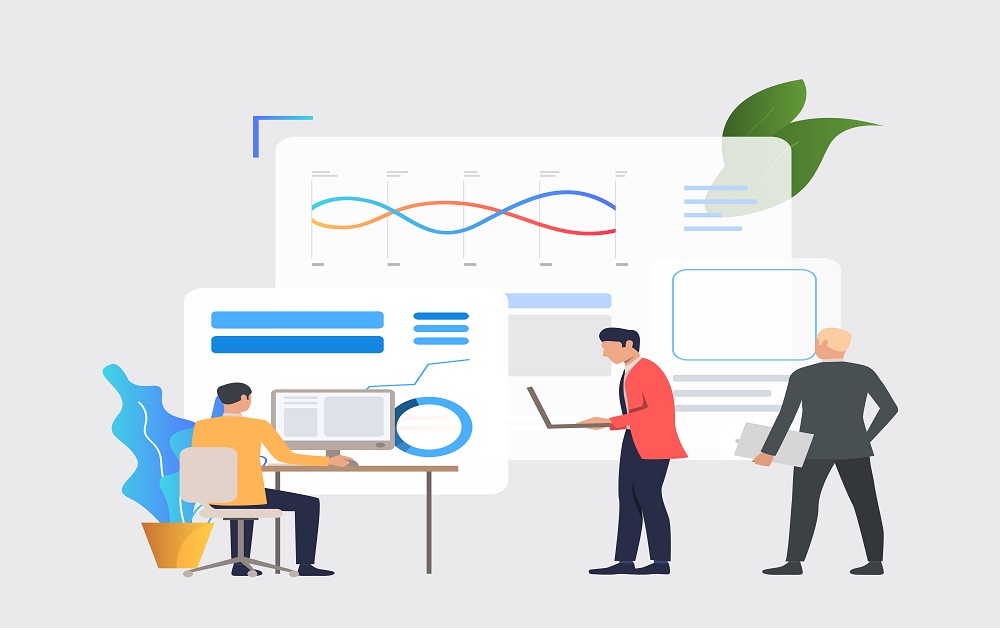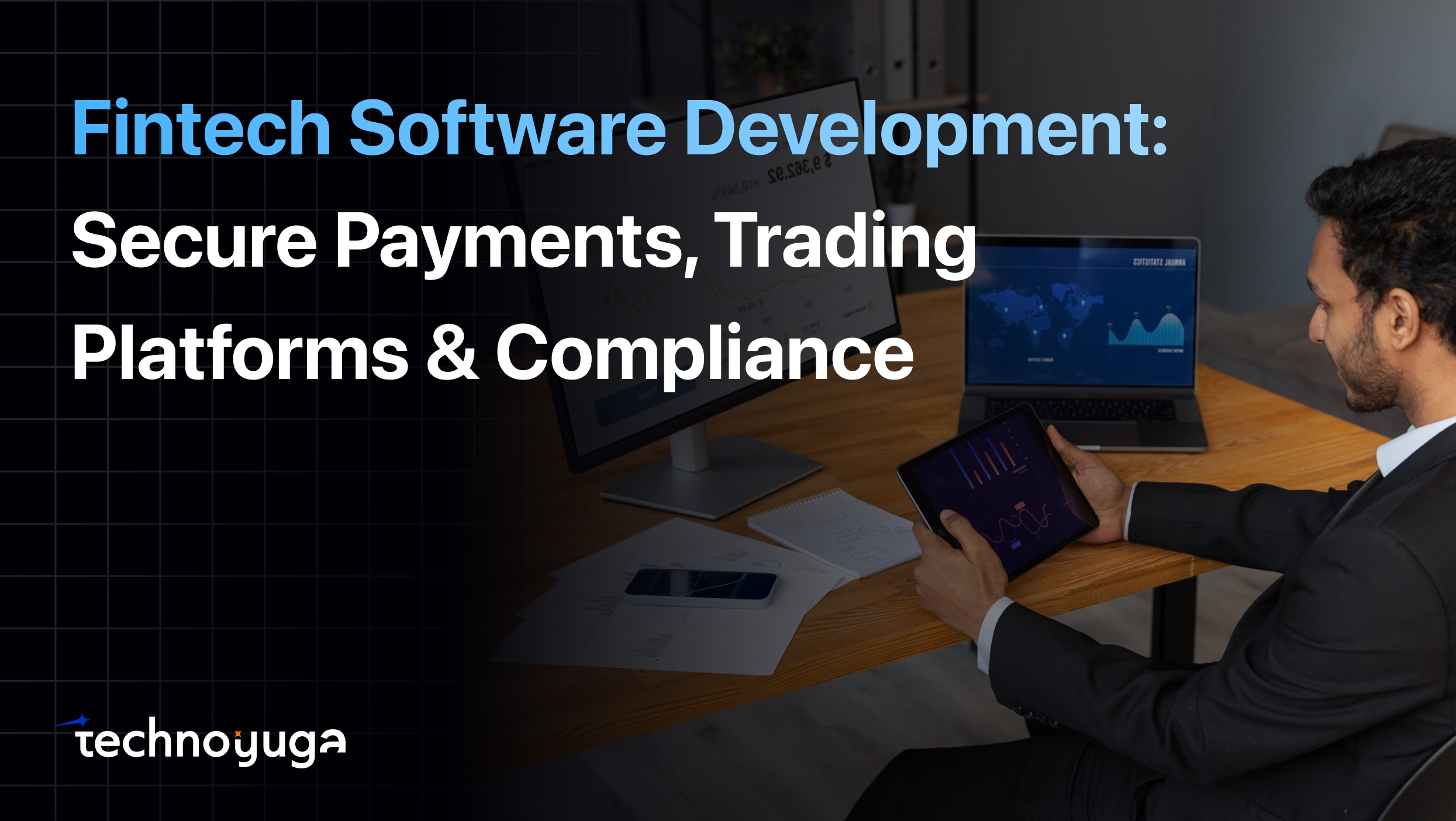Mobile applications have become crucial in the modern technological advanced world where almost every business is inevitably involved in it. Whether you are a new businessman who wants to stand out or existing businessmen who want to widen the market area, mobile applications will be helpful in conveying information to the customers. But one question often comes up: what will be the Mobile app development cost in New Zealand
In 2025, the cost of developing a mobile application in New Zealand depends on many factors including the level of difficulty of the mobile application, the functions you wish to include and whether you employ local talent or outsource the job. As technology evolved, the app development services’ solutions were more diverse than before, though at different costs.
In this blog, you will find out what exactly determines the costs to develop an app in New Zealand and how much would it cost in 2025? Regardless of whether you are seeking to develop an application that should contain only the information you need, or create an online store with numerous possibilities, it is crucial to be aware of all the costs connected with an application’s creation. Alright let’s find out how much it will cost to bring your app idea into existence!
Factors Influencing Mobile App Development Costs
Here the factors that influence your iOS and android App development pricing
1. Type of App
There is a direct correlation between the category of the application you wish to develop and its price. An app with very small capability compared to the high-end tablets is cheaper, say a calculator or a news feed app. Mid-tier apps like e business or social networking apps call for higher development costs due to functions like user administration and payments. There are many categories of apps, yet complex and most popular apps such as on-demand services or artificial intelligence apps fall into the highest category due to additional features and integrations needed. The more complexity of an app, the greater the cost of its development.
2. Features and Functionality
The various features that you incorporate into the application also determine the final cost of the application. Simple functionalities like login systems or push notifications are fairly cheap overall. More complex features like, fully functioning apps with extra features like in-app purchases, real time chat, or other apps that use GPS tracking will inevitably be more costly in development time or resources. Additional features developed to prompt your preferences, automated advice via artificial intelligence technology, built-in block chain also contributes to the cost factors. This is because features add complexity to the overall development and the more you would wish to have in the resultant product, the higher the development costs will be.
3. Design Complexity
The appearance of the application in question largely determines its usability and expense. A plain and conventional layout is not costly and easily made as compared to an attractive and more sophisticated layout. However, designs created on special layouts, with the use of complex animations and interactive features increase the total price for the projects on account of the creativity applied. A design is also important to be organized nicely where users can easily interact and stop for a while, but it gets expensive.
4. Platform Selection
Deciding where your app will be developed, whether on iOS, Android, or both affects the cost. Creating a native app is the most effective solution but the process takes twice as much time and money. This is pretty much the idea behind building applications across both platforms using technologies such as Flutter or React Native, it cuts the costs in half. But it may have some disadvantages compared to such apps as native ones. Your choice depends on your target market and your pocket.
5. Technology Stack
Technology stack denotes the technology platform which includes tools, frameworks, and languages selected for your app development. The stack to be chosen depends on the needs of the particular app.
For instance, addition of AI, AR/VR or blockchain or fabrication demands distinct technological tools and excellence, both of which are costly. A less complex application could afford to employ existing technologies, and as such is cheaper. Choosing the right tech stacks helps to make your app optimized for the intended use and achieve the desired results, but they are more expensive.
6. Development Team
If building an app from scratch, the cost depends on who or what Mobile app development company you hire to do the development. Freelancers are sometimes less expensive and can sometimes do inadequate work or not have the same range of equipment as experienced staff. Local development agencies in New Zealand are comparatively expensive but produce quality work and communicate more efficiently. Outsourcing offshore can be cheaper but brings communication issues or rise the risk of working with lower quality developers. In this case, an experienced team provides a more accurate delivery of tasks, though the services provided by such a team are more expensive.
7. Post-Launch Costs
Development costs don’t end once your app is launched. It focuses on ensuring that the app remains active with operational costs that include maintenance, updates, bug fixes, and support. The integration of new features also leads to a higher expense over time since the existing features are modified. Advertising your app and getting it out to the right people is also another cost factor. It helps in planning for the costs acquisition after the launch hence planning for the future of the app.
Average Costs of Mobile App Development in New Zealand in 2025
Estimates for developing a Cost of app development 2025 depend on the app’s functionality, design and the iOS app development company that is going to work on it. Here’s an estimated breakdown of costs based on app type and requirements:
1. Simple Apps
A very basic informational app with no significant features or just a simple tool app costs between 10,000 to 25,000 New Zealand dollars. Common characteristics of such applications are simple graphics and lacking functionality which can be compared to having only the main page and no more.
2. Mid-Complexity Apps
Medium level applications, which can be used in e-shopping, health and nutrition monitor, appointments and reservations, cost between NZD 25,000 to 80,000. Payment gateways, user authentication forms, notifications, as well as API connections are some of the components in this category. Other aspects such as design customization of the application as well as the extra development for the background also increase the cost.
3. Complex Apps
Highly complex apps, such as on-demand service apps (like Uber), social networking platforms, or AI-driven applications, can cost anywhere from NZD 80,000 to 200,000 or more. These apps often involve advanced features like real-time chat, geolocation services, AI/ML algorithms, and scalable architectures.
4. Hourly Rates
According to the New Zealand app developers, the fees for developing an app can be anywhere from NZD 100 to 200 per hour depending on the expertise of the working team and the location. Some freelancers charge an arm and a leg for the project, while agencies require more money, yet the final output’s quality and quality are much higher than freelancers.
5. Offshore vs. Local Development
Although local development provides improved communication and better quality, some firms opt for offshore development to reduce costs. The rates can be 30-50% lower but might mean working with an offshore team, which means time zone differences, or communication barriers.
Benefits of Choosing Local Developers in New Zealand
1. Better Communication
Engaging local developers is preferred because this reduces barriers in communication. They are generally in the same time zone to attend meetings at the same time and to respond quickly without undue delay. In-person interactions are also less of a challenge since you can talk about your vision one on one and precisely fix people’s worries.
2. Understanding of Local Market
Local developers are aware of trends and customers’ needs as well as understanding the New Zealand market and regulatory requirements. They can make your app meet the needs of the local users, hence providing you with an advantage over the other business entities. It enhances the prospects of success since the insights received guarantee that your app complies with cultural and regional expectations.
3. Higher Quality Standards
New Zealand has always had the backup of developers who always follow quality standards and best practices. They are more likely to incorporate formal process frameworks so that the application is coded with robust designs, fast speed and secured process to meet regulatory standards of the region.
4. Access to Local Support
Support post implementation is easy because you selected a local team. If your app is in need for updates, maintenance, or bug fixes in the system, local or can be helpful because NZ app developers’ rates are nominal. There is always availability of support without the issue of working in different time zones or due to language differences.
5. Networking Opportunities
Also, engaging local developers will enable you to deal with other firms and experts in your industry. Such relations can provide ways of working together, partnership and having business opportunities with the other partners.
6. Boosts Local Economy
You help to support the development of New Zealand’s tech industry when you hire local developers. It will provide encouragement to local talents and at the same time go a long way towards creating an atmosphere of healthy competition for people from the region to develop more applications, ideas and businesses to compete in the business environment.
Conclusion
The cost of developing apps in New Zealand will be different in 2025 depending on factors such as the app’s complexity, the features it provides, its design, and the team that works on it. Some applications can be developed for only NZD 10,000 or even less, while others can reach and even exceed NZD 200,000.
Including local developers has advantages such as being able to communicate with them easily, facilitate understanding of specific market niches and get high quality work. With proper planning, budgeting and teaming, you can be able to develop the right app to help you achieve your business objectives.
No matter whether you’re creating a plain simple tool or an innovative gaming application, in today’s world having a good application is crucial.
FAQs
1. What is the initial Mobile app cost in New Zealand?
Basic application development for New Zealand costs NZ $ 10,000 to $ 25,000. Such apps usually come equipped with standard features and often have simple layouts, which makes them suitable for companies with a small amount of funds or for those who want to launch a first version, an MVP.
2. How long does it take to develop a mobile app?
The app development time may also significantly differ from one another depending on the app’s complexity. Applications with low complexity may be developed in two to four months of application development; those of moderate complexity will take four to eight months. Complex line of business or high-end applications with artificial intelligence or real time requirements can take anything between nine to twelve months or even more.
3. Does choosing cross-platform development reduce costs?
Yes, using tools like Flutter or React Native to develop applications for both operating systems at once, does cut the costs. Because it uses a Swipe View component that is cross platform the above was achieved with less effort and time than developing two native apps for iOS and Android. However, it may not mimic native apps’ performance for a few of the touch features in the advanced form.
4. Are there ongoing costs after the app is launched?
Yes, some of the post-launch costs include the cost of maintaining the software, sustaining, fixing the bugs that may occur in the future, and the cost of server hosting. You may also invest in advertisements to advertise the app. These costs, usually amounting to 15–20% of the initial cost of developing the app, guarantee that your app remains useful and up to date.
5. Is it better to Hire Dedicated Developers, local or offshore developers?
Local developers can offer better communication, better understanding of the local market, and better work quality, although they charge more money. They can charge affordable prices compared to their local counterparts but downsides like working with persons in different time zones demand quality assurance programs. It should be tailored by your budget, by the specific need of your project as well as your expectations in terms of collaboration.








